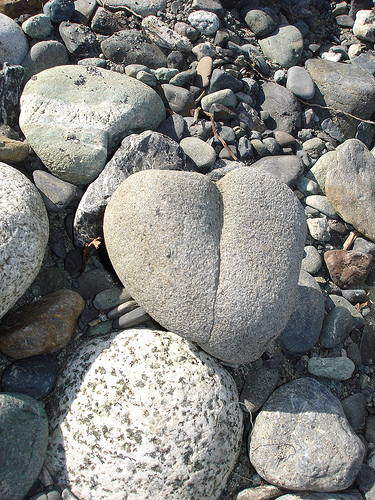A friend told me a few months ago that when he was going through heartbreak, he found his way through it by reading an entire graphic novel series in a slightly obsessive binge. He assured me that I would find something to help me through my heartbreak as well. This hopefully is my graphic novel series, not literally of course. For me, it is Jonah Lehrer’s How We Decide.

As strange as it may seem, making sense of what is going on in my brain and in my heart seems to be the only way out of heartbreak for me. Somehow, figuring out some of the things that might be causing me to feel pain is therapeutic and somewhat exciting. I want to know why I feel the way that I feel and why things happened the way that they did. I might be able to parse out some things for that first half but probably not the second half.
Heartbreak has been so difficult to deal with because, just as the term suggests, I feel broken by the loss of love. It may at least be partly explained by loss aversion, a concept that means people strongly prefer avoiding a loss, and that feeling might be stronger than the desire to acquire a gain.
Loss aversion is a theme that comes up in How We Decide, mostly when dealing with gambling and betting. People who are losing money are more likely to keep gambling or hold on to depreciating stocks because the thought of leaving at a loss is too much to bear. Loss aversion can be linked to some irrational decisions and/or behavior.
The neuroscience behind this suggests that certain areas of the brain increase in activity when the potential gains increase and decreasing activity may represent potential losses. Neural signals could be measured to try to predict loss aversion behavior by comparing the relative activity induced by the gains and losses.
For me, the thought of not being able to create more happy memories with that person is unbearable. I feel unsatisfied with the way things ended and have the urge to hold on until things look better. This is irrational of me and I know that, but my emotions won’t let me accept that loss very easily.
Lehrer brings up the point that it can seem to take several positive comments to make up for one negative comment, and in general that pattern seems to hold true for many things. For example, a married couple might come into trouble from a single comment, but it takes several more instances of good effort to make up for it. Why else would guys need to bring peace offerings from at least 2 out of the 3 biggest industries that benefit from these events: flowers, chocolates, and jewelry?
I feel the remaining negative feelings from heartbreak more strongly than I feel the positive feelings of possibly dating people. In other words, the potential gain of affection from potential suitors has not yet exceeded the loss of the love of this one person.
In other words, the thought of dating again crosses my mind often and it is exciting to have the possibility there, but that feeling is still not stronger than the longing to go back.
But, perhaps this is why finding new love is the best cure for a broken heart (so I’ve heard). By this reasoning, the only way to recover from that negative experience is to have many more positive experiences to counter it. And for that to happen, you have to be out there, exposing yourself to new things. (So hang in there! It has to get better!)
So…am I healed yet? No, but I’m getting there. Eventually the amount of activity in response to this loss will be overwhelmed by the activity in response to a gain.
Anyway…Happy Valentines Day all!
Image credit: Flickr user johnkoetsier
Related posts from other blogs/websites:
- Dan Gilbert asks, Why are we happy? (TED Talk from TED.com, “We synthesize happiness but we think happiness is a thing to be found.”)
- Bubbles (about financial bubbles and an experiment) from Jonah Lehrer’s blog on Science Blogs
By the way, a few people (whom you know) commented on this post when it was linked on reddit:
http://www.reddit.com/r/science/comments/b20o1/just_in_time_for_valentines_day_is_heartbreak/
Thanks Nat! 🙂 Just read this post over again.
Sorry to hear about the hearbreak – it would be interesting indeed if it could be explained from a scientific view!
The less scientific view (by Barbara Brennan) is that invisible links are made between people, and if those get torn, people can experience problems indeed, until they learn to connect to either other things or people or themselves.. (something like that, if I remember it right!)
Getting distracted with interesting things, books or people can help, or writing terrible country songs or such! 🙂
Hope it’s all better now & wishing you lots of wonderful dating adventures on the way!
The idea of invisible links between people is interesting. I can definitely see that point of view. Kinda makes sense since emotions are pretty invisible too.
Thanks for the thoughts and I’ll look up Barbara Brennan to read up on what you mentioned 🙂